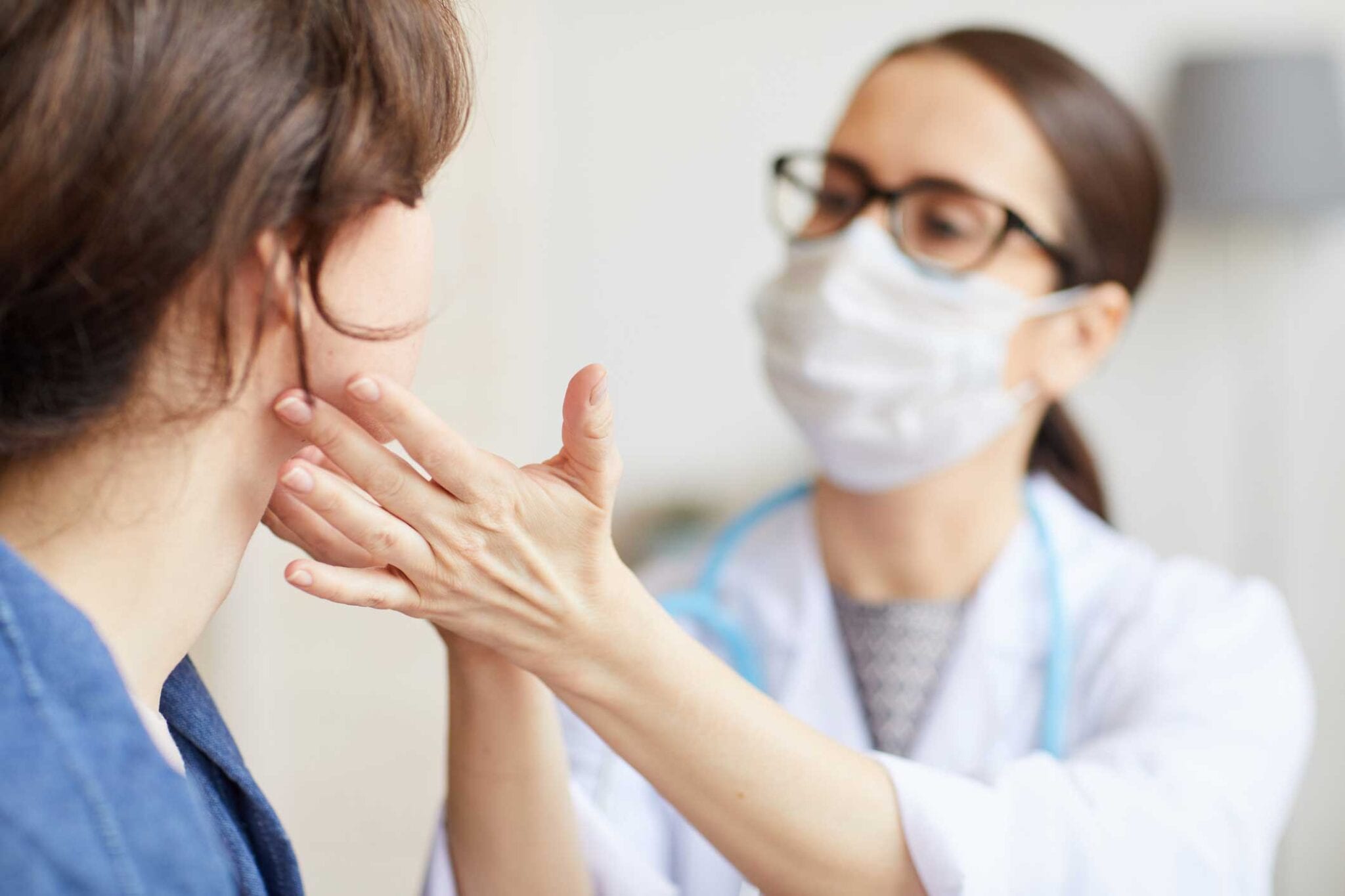
Also referred to as mouth cancer, oral cancer can develop in almost every part of the mouth, including on the lips, gums, tongue, roof of the mouth, under the tongue, or along the cheeks’ inner lining.
Oral cancer forms when mutations arise in the DNA of the cells within your mouth, signaling them to grow and divide instead of dying like healthy cells.
As these abnormal cells accumulate, they can cause a tumor. Over time, they can spread throughout the mouth, to other parts of the head and neck, or other areas of the body.
If you have noticed a lump or sore in your mouth that has not healed over the course of several weeks, you may be concerned about whether this is a sign of oral cancer. Consider the information below to learn more about the common symptoms of oral cancer, the risk factors for developing oral cancer, and the steps you can take to reduce your chances of oral cancer.
Common Symptoms of Oral Cancer
If you experience any of these symptoms that persist for more than two weeks, you should visit your doctor right away:
- Any unexplained lumps or growths inside your mouth that do not heal
- Any unexplained lumps in the lymph glands of your neck that do not disappear
- White or reddish patches inside your mouth
- Bleeding, numbness, or pain in your mouth
- Difficulty opening and closing your mouth, speaking, or chewing
- One or more unexplained loose teeth
- A tooth socket that hasn’t healed after a tooth extraction
- Difficulty swallowing or pain while swallowing
- Changes to your voice or speech problems
- Ear pain
Risk Factors for Oral Cancer
The following circumstances increase your risk of developing oral cancer:
Use of tobacco products, including cigarettes, pipes, cigars, and chewing tobacco
Heavy use of alcohol
Human papillomavirus (HPV)
Weakened immune system
Prevention of Oral Cancer
While it is impossible to completely prevent oral cancer, you can reduce your risk by taking the steps below:
- Avoid tobacco products. If you don’t already use tobacco products, don’t start using them. If you do use tobacco products, stop right away.
- Avoid consuming alcohol or consume it in moderation, defined as no more than one drink per day for women or for men over 65 years old and no more than two drinks per day for men under 65.
- Avoid excessive or long-term sun exposure. If you do spend time outside, apply sunscreen to your lips, wear a wide-brimmed hat that provides shade to your entire face, and stay in shady areas when you can.
Visit your dentist for regular exams and to learn more about potential risks.
The information and content on our website should not be used as a substitute for medical treatment or advice from your doctor.








